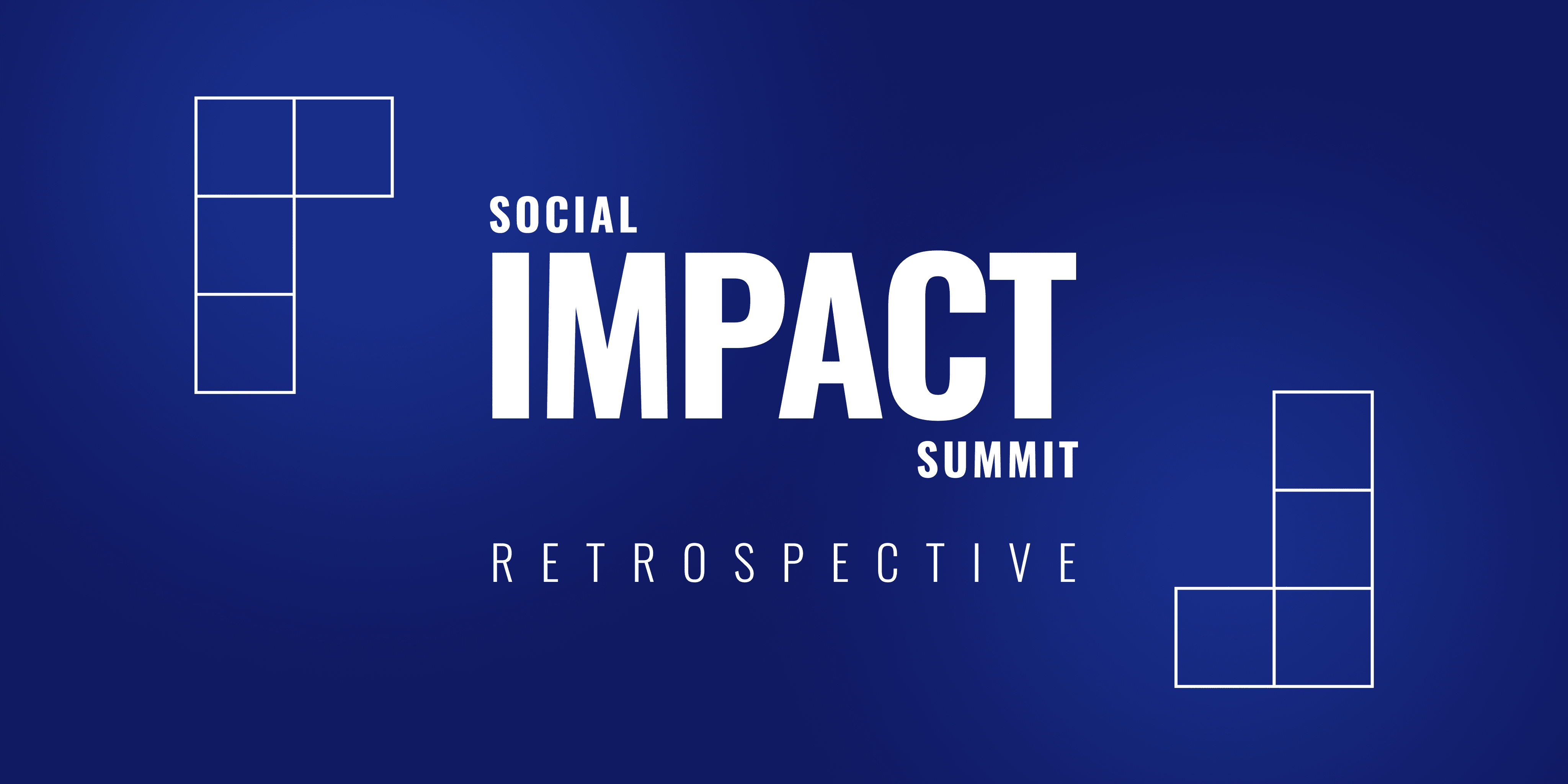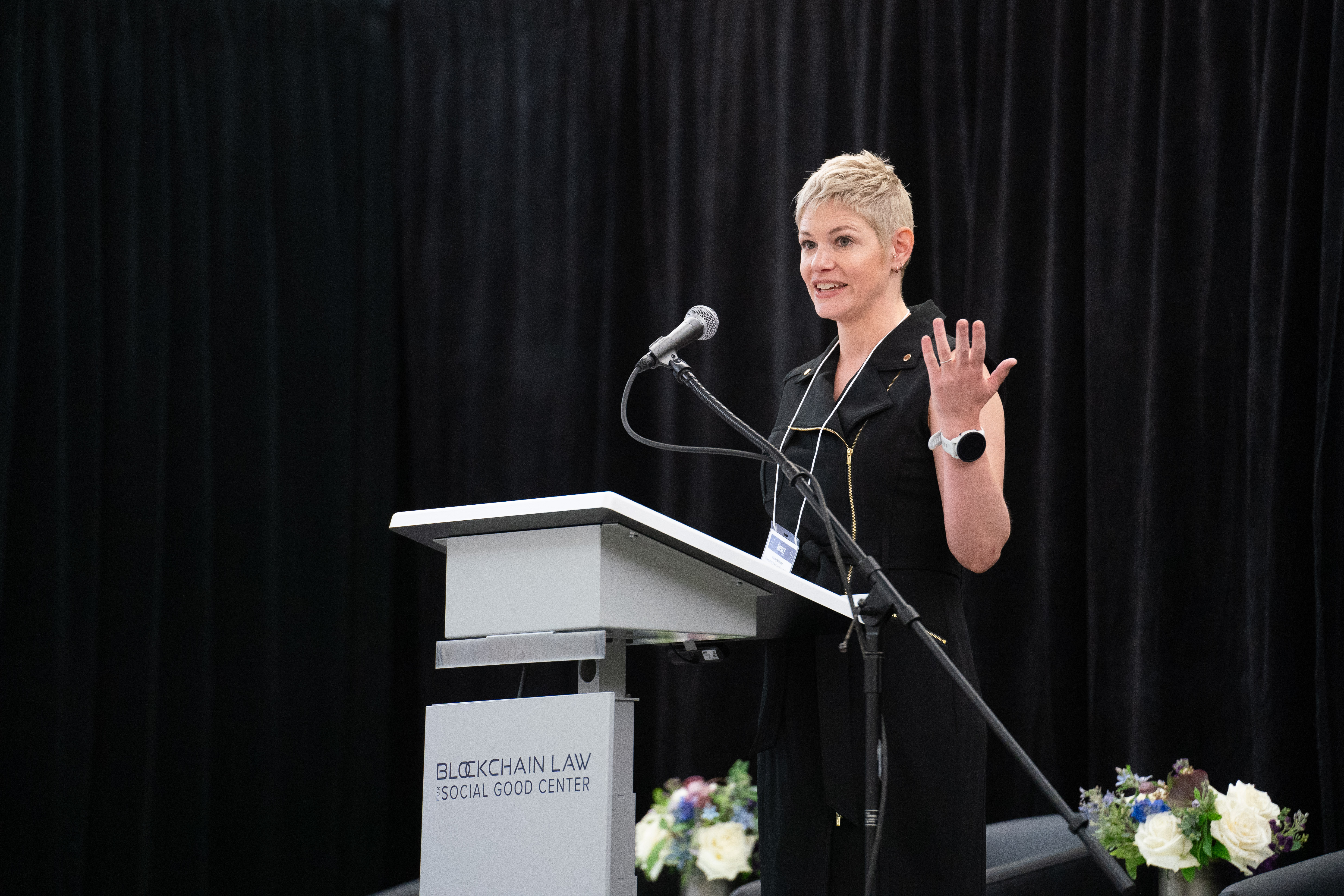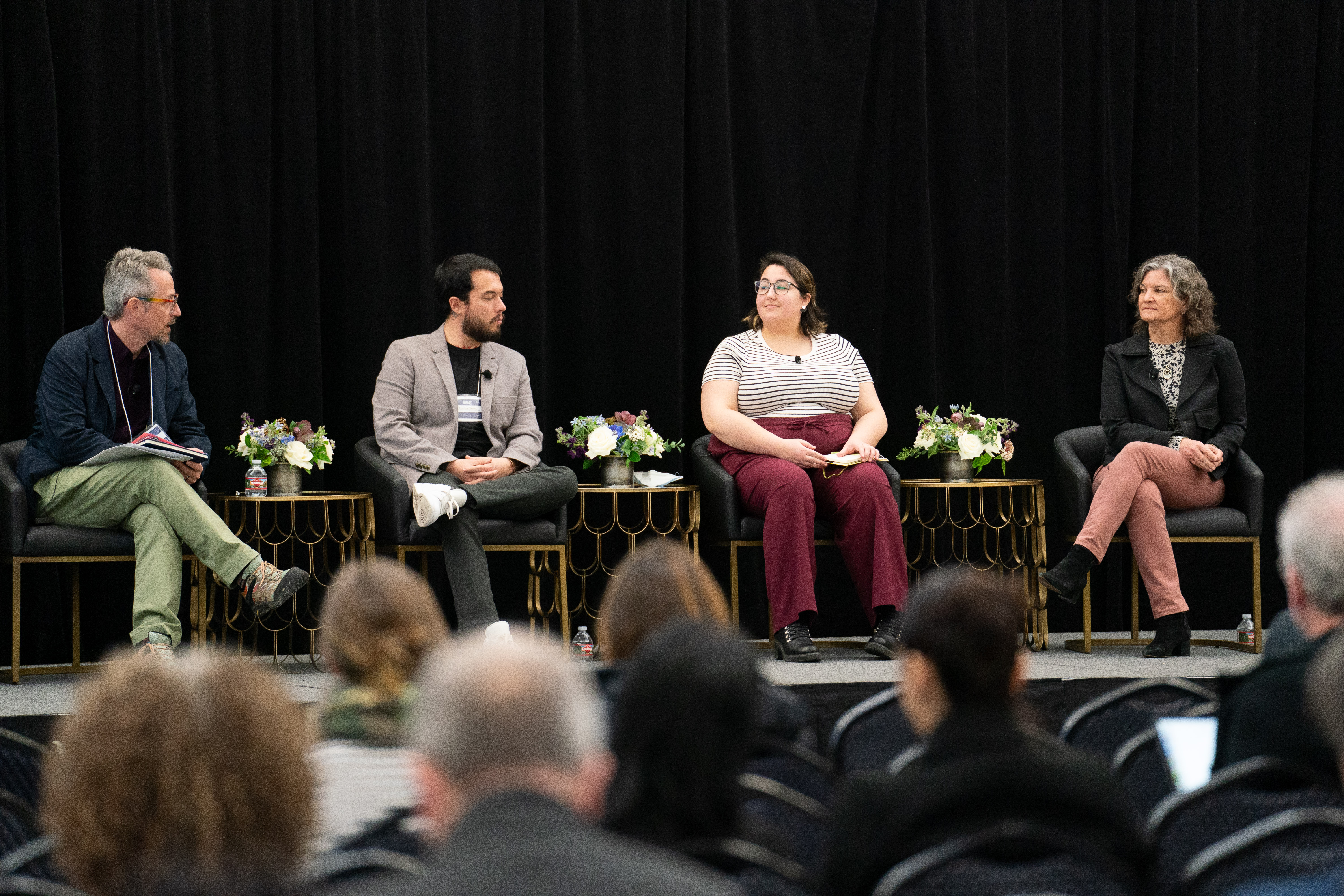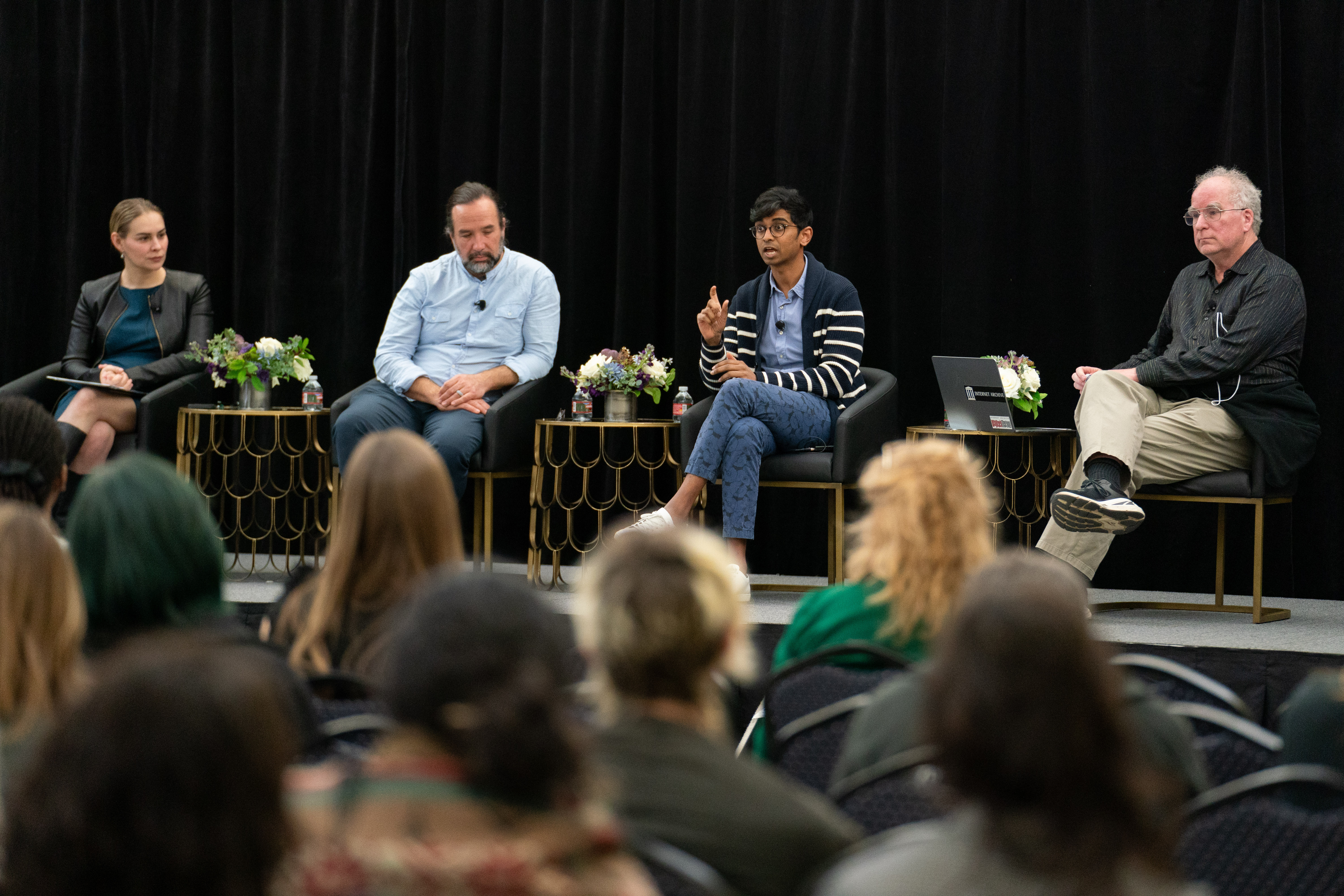How Decentralized Technology is Driving the Future of Social Impact - A Recap from the Social Impact Summit 2024

This month, the Social Impact Summit 2024, co-hosted by Blockchain Law for Social Good Center (BL4SG) and Filecoin Foundation for the Decentralized Web (FFDW), brought together changemakers to explore how emerging technologies can influence trust in the web. Through a series of thoughtful discussions, the Summit illustrated that these technologies are not merely theoretical concepts but are actively fostering a more connected, empowered, and resilient world.
The Summit was also a moment to promote collaboration across the DWeb and FFDW communities. Trust was a central theme that emerged through the Summit, highlighting the need to reassess how to establish credibility online amidst an evolving digital landscape shaped by AI, deepfakes, and other technologies. The event was a chance for the community to explore integrating trust into the fabric of emerging technologies and enhancing the reliability of digital content –– and an opportunity to establish a foundation for collaborative efforts to reimagine trust in the digital age.
Read on to learn more about the sessions and themes that emerged from the inaugural Social Impact Summit 2024.
The Importance of Decentralization in a Centralized World
The Summit opened with a keynote from Rainey Reitman, Board President at Freedom of the Press Foundation. Through three real-world stories, she captured the essence of decentralization as a beacon of transparency, community empowerment, and protection of freedom.
Rainey first shared about the creation of DocumentCloud, a platform for analyzing and sharing source documents used by journalists all over the world. To ensure the archive would stay indefinitely available to the public, FFDW teamed up with MuckRock to create new functionality in DocumentCloud. Now, any journalist who uploads to DocumentCloud can also send a copy to the Filecoin network, a decentralized data storage system designed to be resilient against problems that plague centralized models, like single points of failure and linkrot.
I rest easier knowing there is a decentralized data storage system that will enable the long-term preservation of vital documents.
Her narrative continued to a story about a small Oregon community and its residents’ struggle with reliable internet service without public infrastructure. Residents leveraged a decentralized project called Althea to provide community-driven internet in the absence of major Internet Service Providers (ISPs). For Rainey, this highlighted another key aspect of decentralized technologies –– anyone can become a key contributor to the network.
The best decentralizing projects create more human experiences of technologies, so people can actually contribute.
Lastly, Rainey transitioned to a story about James Risen and SecureDrop. Risen was an award-winning journalist, who faced a legal battle to protect his sources. Through invasive surveillance, his source was ultimately identified and convicted. Freedom of the Press Foundation developed SecureDrop to create a better way for sources to contact and communicate with journalists without disclosing their identities, highlighting yet another critical feature of decentralization – apps or software that can operate outside of centralized control.
Rainey’s compelling illustrations of how decentralized technologies improve lives set the tone for a day of exploring the promise of the DWeb. Watch Rainey’s full keynote here.

Global Outlook on Blockchain and Tech Innovation
Head of Global Social Impact Programs at FFDW, Hunter Treseder, led a discussion around blockchain’s global potential to drive transformation. Featuring members of BL4SG’s first cohort of the FFDW International Affiliated Scholars program, the panel explored the merits of digital currencies from different geographical and socio-economic perspectives.
David Adepoju, a prominent mind in African tech policy, dove into how many African populations are rapidly embracing cryptocurrencies to circumvent unpredictable inflation, work around banking inefficiencies, and foster economic activities. David emphasized that in Africa, crypto is a valuable tool for daily transactions and supporting local business economies where traditional banking falls short. Alexandra Andhov, an Associate Professor at the University of Copenhagen, spoke to European governments’ motivations for adopting digital currencies, including enhancing existing digital infrastructures and exploring unified digital currencies.
These diverse perspectives underscored the challenge of redesigning financial institutions' infrastructure in a way that benefits everyone.
Blockchain’s Role in Global Equity
Sam Gregory, Executive Director of WITNESS, led a panel on how blockchain and decentralized web technologies can foster global equity. The panel brought together Enrique Crespo Peñaherrera from the United Nations Development Program, Alex Esenler from Open Archive, and Candace Kelly from Stellar Development Foundation, who all shared insights on integrating emerging tech into various sectors to address critical issues ranging from financial inclusion to human rights documentation.
Enrique discussed the UNDP's efforts to harness digitalization to cultivate development across Latin America and the Caribbean, spotlighting the importance of inclusive digitalization to prevent people from being left behind. Candace highlighted Stellar's mission to provide equitable access to the global financial system by showcasing a project with the UN High Commission for Refugees that utilized blockchain to safely and efficiently distribute humanitarian aid. Alex from Open Archive shared their focus on secure, decentralized archiving for human rights media, ensuring that communities and smaller organizations can safeguard and verify their digital content.
The conversation centered on the crucial theme of co-designing technology with the communities it aims to serve. In contrast to Big Tech’s approach of “move fast and break things,” the panelist emphasized the need to move slowly and thoroughly understand any implications before deploying new technologies.

Finding Balance between Law and Innovation
The panel, moderated by Nik De of CoinDesk, dove into the pressing issue of how existing laws often fall short of addressing current needs. Johnette Jauron of the CA Department of Justice and Debroah McCrimmon from Ripple both discussed the enforcement and legal challenges arising from a lack of regulatory clarity in the digital asset space. Travis Moore of TechCongress called attention to the importance of integrating technological expertise into the legislative process to address the evolving landscape. And Kat Walsh from Creative Commons, spoke on the parallels between blockchain and open-source software, stressing the need for legal systems to adapt to new models of content distribution and ownership.
The conversation highlighted the need for regulatory frameworks that accommodate emerging technologies, and the panelists advocated for proactive, inclusive legislation that is forward-looking, rather than reactive –– merely responding to past incidents. The discussion emphasized the significance of involving both lawmakers and the public to better understand blockchain's benefits beyond finance, suggesting that personal stories and practical uses could help connect complex technology with effective legislation.
A Fireside Chat with Marta Belcher
Marta Belcher, President and Chair of FFDW, was initially drawn to cryptocurrency for its capacity to bring civil liberties protections like financial privacy into the online realm. In her fireside chat with Evîn Cheikosman, she emphasized the importance of decentralized technologies that do not concentrate power within the hands of a few corporations, thus fostering a more inclusive and equitable digital future.
Marta introduced the audience to the world’s largest decentralized file storage network, Filecoin, and the broader mission of Filecoin Foundation and its sister organization FFDW –– to leverage decentralized web technologies to preserve humanity’s most important information and bring trust and transparency to an increasingly AI-driven world. She envisions decentralized storage and compute as underpinning the next generation of the internet, offering an alternative path to Big Tech and enhancing users’ control over their data.
Innovations in Tech Integrity
Brittan Heller, a professor at Stanford University specializing in international law, human rights, and tech policy, led an engaging panel on the gravity of building trust and integrating integrity within the tech stack. The discussion brought together experts from diverse initiatives, each sharing their unique approach to embedding authenticity and provenance into current technologies –– all aimed at creating a web that is both trustworthy and robust.
Nathan Freitas discussed the Guardian Project's focus on verifiable audio-visual evidence and decentralized distribution, emphasizing the project's efforts to ensure the integrity and longevity of digital content. Nikil Raghuveera explained Atheos's decentralized policy engine, which aims to embed policies which enhance transparency and accountability within blockchain smart contracts. And Brewster Kahle spoke about the Internet Archive's mission to decentralize digital information, ensuring broad accessibility and preservation.
The panel underscored decentralization’s pivotal role in advancing a digital environment that users can trust.

Bridging the Digital Divide
To close the day, Crypto Council for Innovation CEO Sheila Warren delivered the closing keynote, sharing insights on the current state of technology, policy, and social change. In a fireside chat with Evîn, she highlighted her work to bridge the digital divide, shape inclusive policies, and foster community engagement in technology –– all through a lens that protects civil liberties and social justice.
She also covered how decentralized web technologies could transform power dynamics into more inclusive and equitable systems and stressed the boundless potential for community, collaboration, and dedication to drive significant change. She urged attendees to remain involved, patient, and active in using technology for social good –– advocating for a balanced approach to innovation that equally values progress and well-being.
Thank you to all those who joined the Social Impact Summit 2024 in person and on the livestream. The Social Impact Summit underscored the critical need for open dialogues and partnerships across different sectors to ensure that the development of new technologies is aligned with social impact values, and we look forward to continuing our work to support the development of decentralized technology.
Check out the full playlist on our YouTube channel or read more about decentralization in the DWeb Digest.